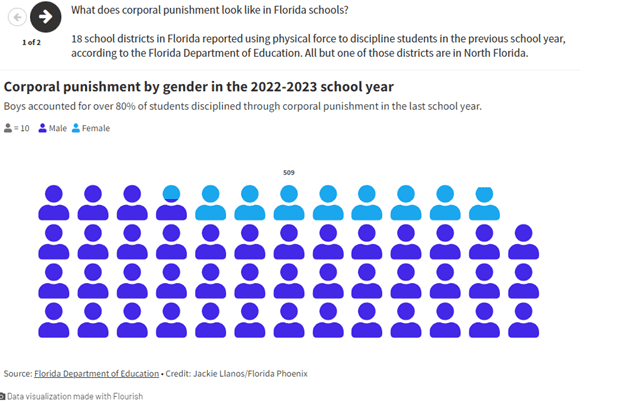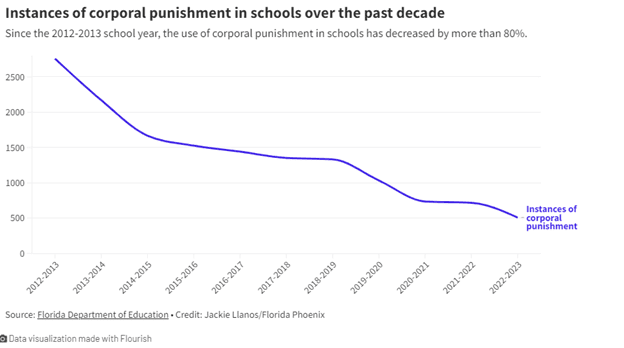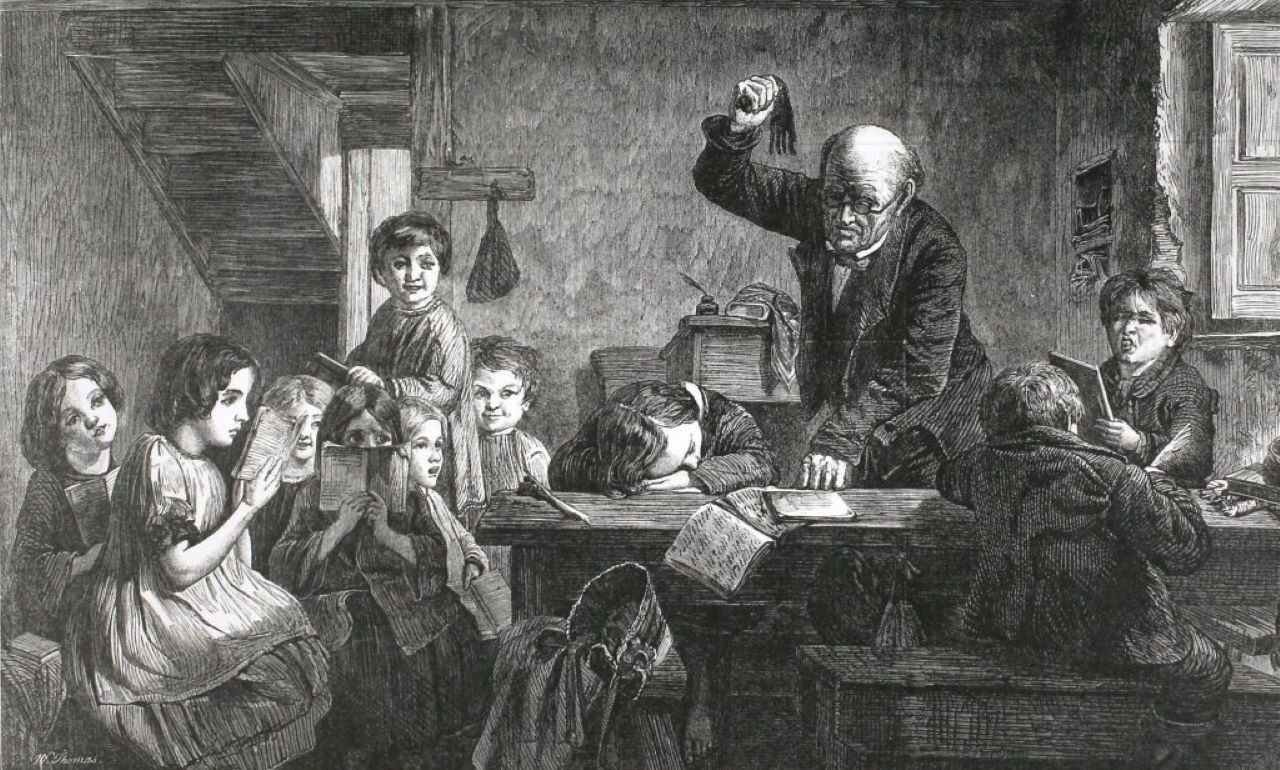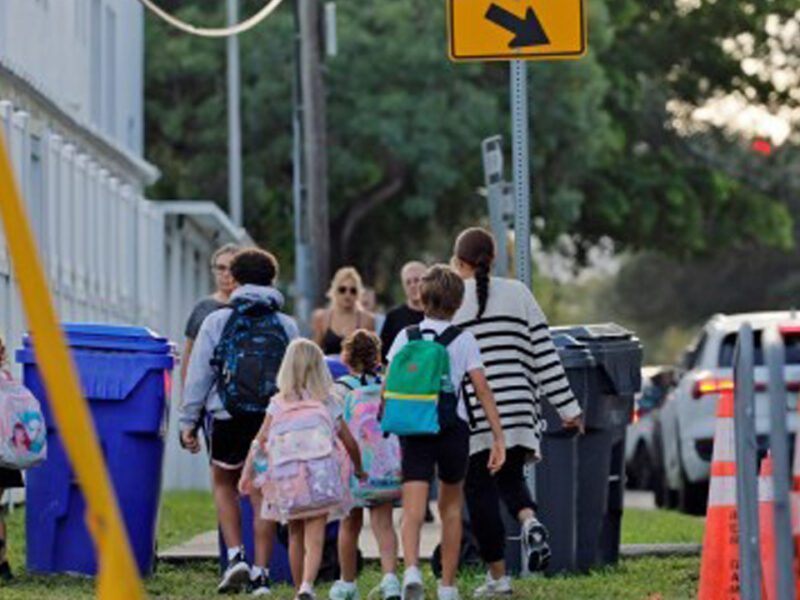Kids can still get paddled in FL public schools, but lawmakers are looking to curb the punishment
Florida Phoenix | By Jackie Llanos | January 31, 2024
Lawmakers in the Florida House said on Wednesday they didn’t know public school officials could still use corporal punishment to discipline students. That practice, which is in use in nearly a third of school districts, could be restricted under a proposal that’s getting bipartisan support this legislative session.
Short of banning school officials from paddling or hitting kids, the proposal from Palm Beach Democrat Rep. Katherine Waldron would require schools that use corporal punishment to get permission to do so from parents at the beginning of the school year.
Principals would be barred from hitting kids whose parents don’t opt in or fill out a permission slip. The bill gained unanimous approval in its first committee stop. The identical Senate version has not been heard.
“Many people probably did think that it was already banned. I didn’t know it was a district-by-district thing. … I can tell you that if it were me and my kid came home and told me that they mouthed off to the teacher and as a result of mouthing off to the teacher some principal took a piece of wood to them; Me and that principal would have issues,” said Democratic Rep. Christopher Benjamin of Miami-Dade County. “This bill doesn’t go far enough. It should be outright banned.”
The measure also bans using physical force on students with students with disabilities and homeless students. Charter schools, which are public schools in Florida, would have to comply with corporal punishment restrictions.
Florida isn’t alone in the use of corporal punishments against students. While the practice is most common in southern states, only 27 states have explicitly banned it, according to the latest analysis from the U.S. Department of Education Office for Civil Rights.


Over the past decade, school districts have lessened their use of corporal punishment, but that doesn’t mean it’s uncommon. In the previous school year, 18 districts reported 509 instances in which officials used physical force to discipline students, according to the Florida Department of Education. When and how the students can be hit is largely left up to principals. Only principals, not teachers, would be allowed to hit the kids under the proposal.
Reported instances of corporal punishment are concentrated in northern Florida counties such as Suwannee, Holmes, Columbia and Calhoun.
‘Capricious and arbitrary treatment’
Although the bill garnered bipartisan support, some House Republicans in the Education Quality Subcommittee said they disfavored a restriction against corporal punishment for students with individual education plans, which demonstrate that a student has different needs or could have a disability. Pasco Rep. Brad Yeager said his son had an IEP but that it didn’t affect his behavior. He also asked if Waldron would consider changing the bill so that parents have to indicate they don’t want principals to paddle their kids.
Waldron said the IEP provision protects students with disabilities who may not be able to control their behavior. In the 2020-2021 school year, school officials reported hitting 200 students with disabilities, according to the U.S. Department of Education.

The line of questioning from Marion Republican Rep. Ryan Chamberlin about whether misbehavior had gone up in counties that didn’t use corporal punishment irked fellow Republican Rep. Mike Beltran of Hillsborough and Manatee. Beltran is one of the GOP sponsors of the bill.
“The subtext to some of the questioning was that somehow we were being lenient, or excessively lenient to children, or that there was some problem in society that arose today that we need to preserve, or expand, or continue to use corporal punishment. I haven’t been lenient at all,” Beltran said.
He also said that corporal punishment should be banned completely. The Legislature attempted to do so not too long ago. In 2019, then Sen. Annettee Taddeo sponsored a bill prohibiting the practice.
He continued: “I could get sentenced by a judge, and they’re still not going to paddle me. Yet some principal and some teacher, basically, can decide to discipline the child. It makes absolutely no sense. It’s completely susceptible to capricious and arbitrary treatment.”
Chamberlin responded that he asked those questions because he was curious about Florida’s use of corporal punishment.
“It’s not about necessarily personal preference. It’s understanding what’s in the best interest of the children and how they can grow and learn,” he said.
Waldron gave credit to a group of University of Florida students who pushed lawmakers to take up the issue.






